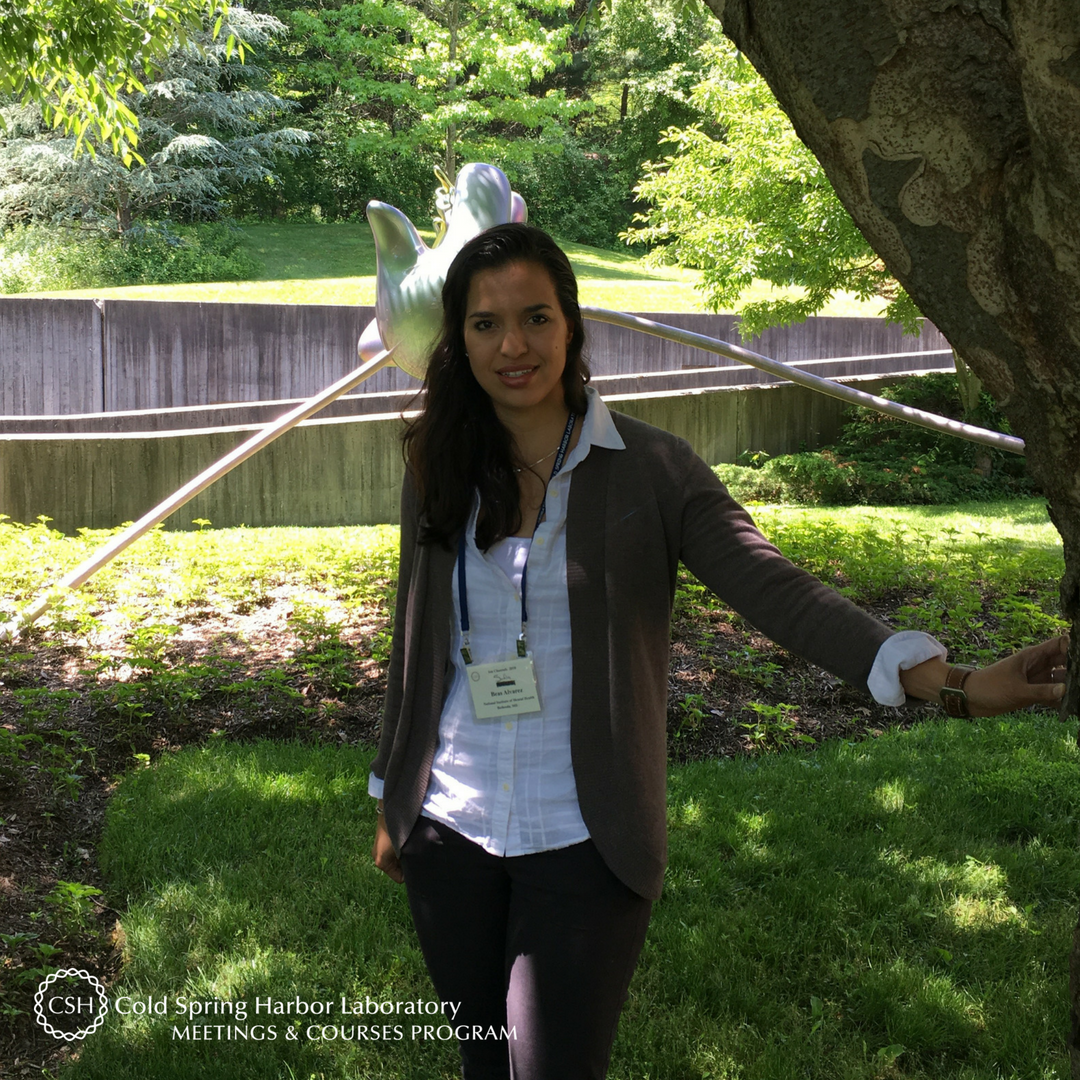Meet Sofia Beas of National Institute of Mental Health (NIMH). Under the mentorship of Mario Penzo, Sofia is part of the Unit on the Neurobiology of Affective Memory. The postdoctoral fellow is on campus attending her first course at CSHL: Ion Channels in Synaptic and Neural Circuit Physiology.
What are your research interests? What are you working on?
My research interests are on understanding the neural mechanisms underlying motivational and affective behaviors, and how they can be dysregulated in pathological conditions. In particular, I am studying the neural mechanism by which stress impacts the neurocircuitry of the paraventricular nucleus of the thalamus, an area of the brain important for linking stress detection to the emergence of adaptive behavioral responses to stress.
How did you decide to make this the focus of your research?
I first became captivated with the area of psychology and human behavior during my undergraduate career. However, when it came time to apply to doctoral programs, I soon realized that the neuroscience field was a better fit for me as it combined the two fields I really enjoyed: behavior and science.
How did your scientific journey begin?
The neuroscience field fascinated me early in my undergraduate career. While working under the guidance of Dr. Laura O’Dell, I received an undergraduate fellowship that allowed me to work full time in her lab and fully immerse myself in the neuroscience field. Thereafter, while pursuing my PhD, I joined the lab of Dr. Jennifer Bizon who mentored and gave me unbelievable opportunities that furthered my education.
Was there something specific about the Ion Channels in Synaptic and Neural Circuit Physiology course that drew you to apply?
Since my current research interest relies heavily on using electrophysiology techniques, I applied to the course to gain exposure using different electrophysiology techniques and to learn from the experts in the field.
What and/or how will you apply what you've learned from the course to your work?
So far, I have learned that electrophysiology can give you a wealth of information about how neurons communicate. This technique can help decode intercellular and intracellular messages, and investigate the specific ion channels, membrane potentials, and molecules that give each neuron its physiological characteristics. Also, I will impart my new knowledge base to my fellow lab mates so they too will benefit from the electrophysiology techniques I learned at this course.
What is your key takeaway from the course?
My key takeaway is the individualized advice on specific techniques imparted by the experts in the field. For example, Matthew Xu-Friedman gave a very interesting and insightful lecture about mEPSCs which included fun examples that really brought the point home. He also sat next to me during a lab session and imparted useful advice on how to make the recordings better. These are particularly useful because, immediately upon returning to the lab, I plan to record mEPSC from neurons.
If someone curious in attending this course asked you for feedback or advice on it, what would you tell him/her?
First, so as to easily grasp the concepts taught, I would recommend getting acquainted with the basic concepts of electrophysiology. Next, I would suggest that they come with an open mind and the mindset that this is an intensive program, yet very rewarding nonetheless.
What do you like most about your time at CSHL?
I like several things. First, I love the place, the campus is beautiful. I also like the friendships I have developed with those in the course. Finally, I must say that the food at the dining hall was quite good.
Sofia received a scholarship from the Helmsley Charitable Trust and funding from the Society for Neuroscience’s (SfN) Neuroscience Scholars Program to cover a portion of her course tuition. On behalf of Sofia, thank you to the Helmsley Charitable Trust and SfN for supporting and enabling our young scientists to attend a CSHL course where they expand their skills, knowledge, and network.
Thank you to Sofia for being this week's featured visitor. To meet other featured scientists - and discover the wide range of science that takes part in a CSHL meeting or course - go here.

